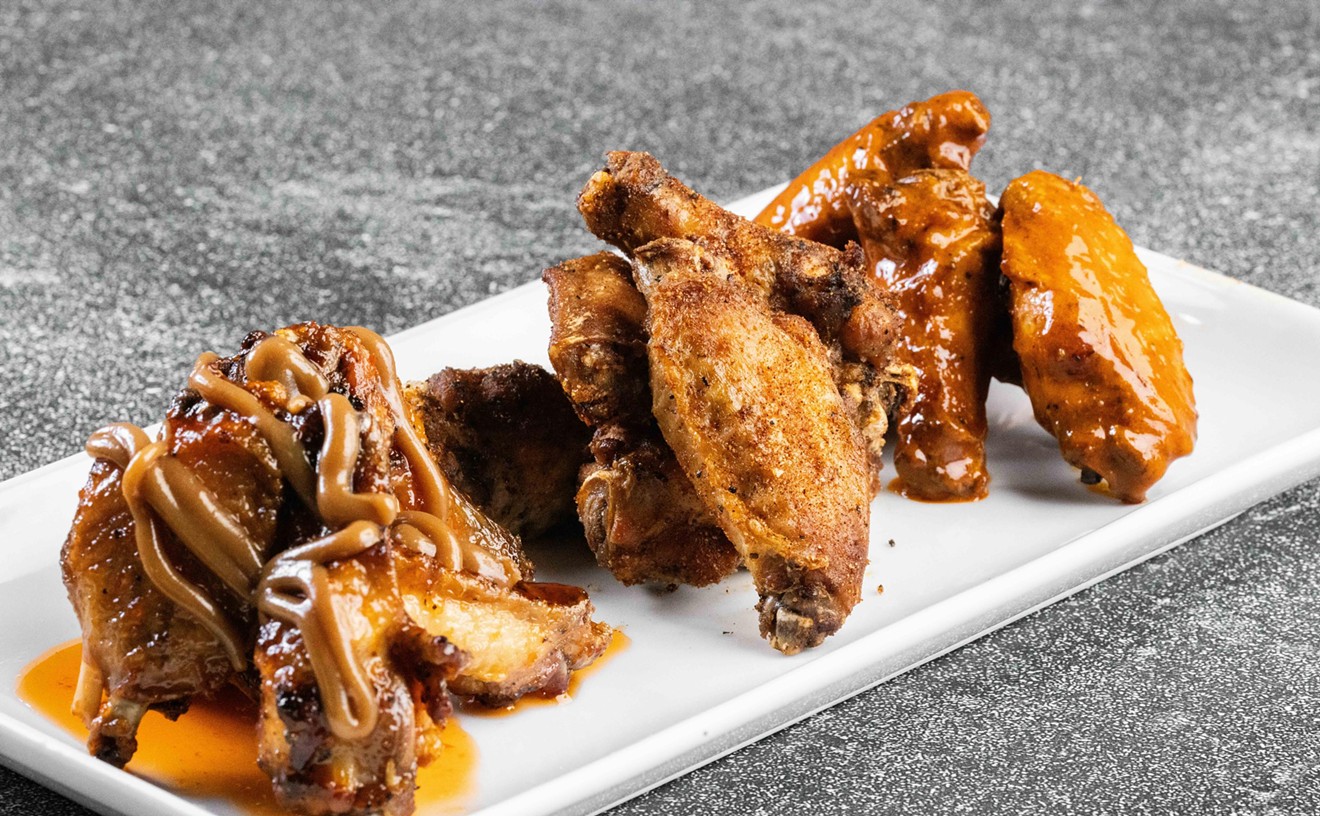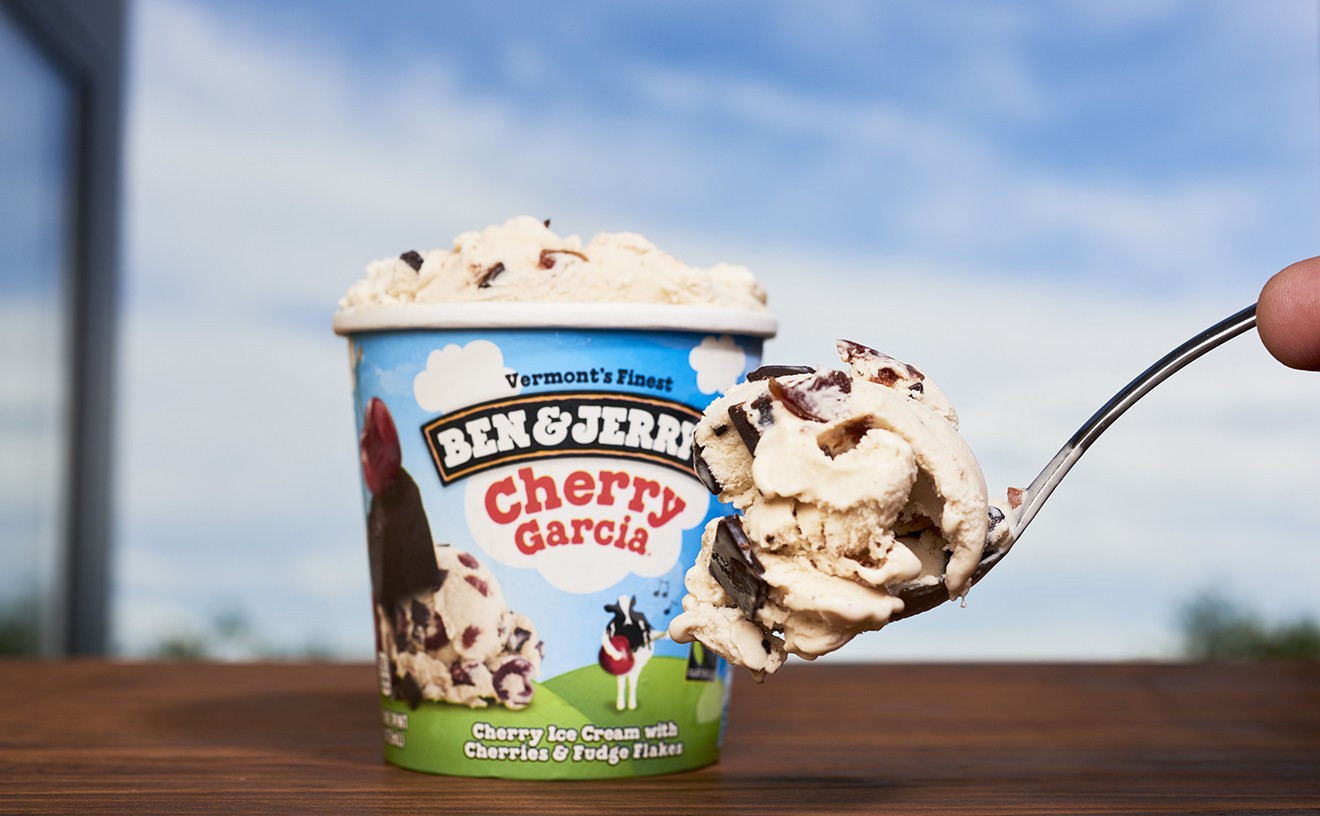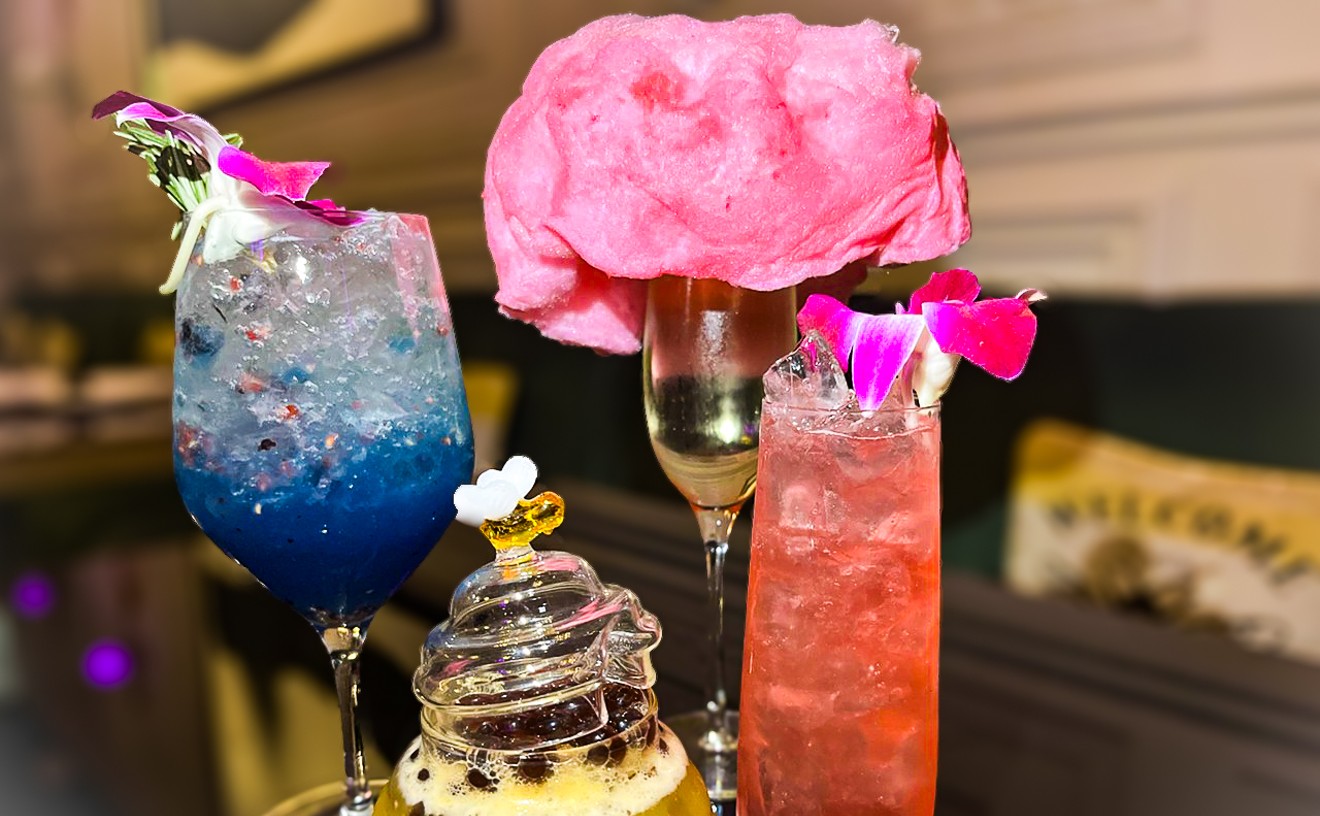Mention a bout with mezcal and at least one of your acquaintances will fire back with the "did you eat the worm" question.
But insect larvae added to bottles of mezcal are a relatively recent marketing gimmick rather than some age-old tradition--an attempt to counter the spell its cousin, tequila, holds over the public thanks to laws granted to protect tequila's regional identity.
For, you see, both spirits are distilled from the heart of agave plants. Because of tequila's special designation, however, production is limited to primarily to the state of Jalisco by distillers using only blue agave. No such constraints govern mezcal, which may come from other species of the spiky shrub--including those growing wild. Otherwise, both categories support craft distilleries and mass producers...just that mass producers of shoddy mezcal lure consumers by dropping plump brownish worms in the bottle.
Genius.
But it can be difficult to track down decent, wormless mezcal in
Dallas. I called Mattito's, for instance, to ask about their stock and
was told first "I don't think so, but I'll ask" by whoever answered the
phone in response to my 'do you have any' and then "I think I see one
from here, but we have over a hundred tequilas, so we'll find something
you like" by a manager. Oddly enough, Vickery Park stocks a line of Del
Maguey, an upscale label.
Del Maguey is a craft brand working with small time, old-school farmers
outside the Jalisco boundary. They bill themselves as "single village"
distillers, producing batches from a crop grown in narrowly defined
territories, roasting pinas (agave hearts) in buried hearths for at
least five days and crushing the remains with stone wheels.
These centuries-old techniques produce some distinct mezcal. Chichicapa
is a fairly standard craft mezcal from a farm southwest of Oaxaca.
Fruity at first, with a resonant, husky backbone, the finish lingers
with peppery, grassy and spearmint notes. Tobala--one of their more
expensive examples--starts with smaller, wild agave plants and goes
through a more extensive roasting period. The result is impressive:
well rounded and complex, with sensations of clove and cinnamon, wood
and smoke, autumn leaves and a drawn-out finish blending smoke and
quinine--a fascinating spirit, though probably not to everyone's taste
(especially at the $100 plus per bottle price range).
They also market a sappy version called crema. Blended with agave
nectar, it seems more like candy than alcohol. Indeed, the label warns:
"For women only...and a few strong men."
There you have it. Anyone can eat the worm, but only strong men can handle a belt from a woman's bottle.
According to the company's website, several Dallas restaurants carry the brand--including Ciudad, N9NE and Sipango...kinda suggests they should update, once in awhile. Vickery Park sells flights for $20.










